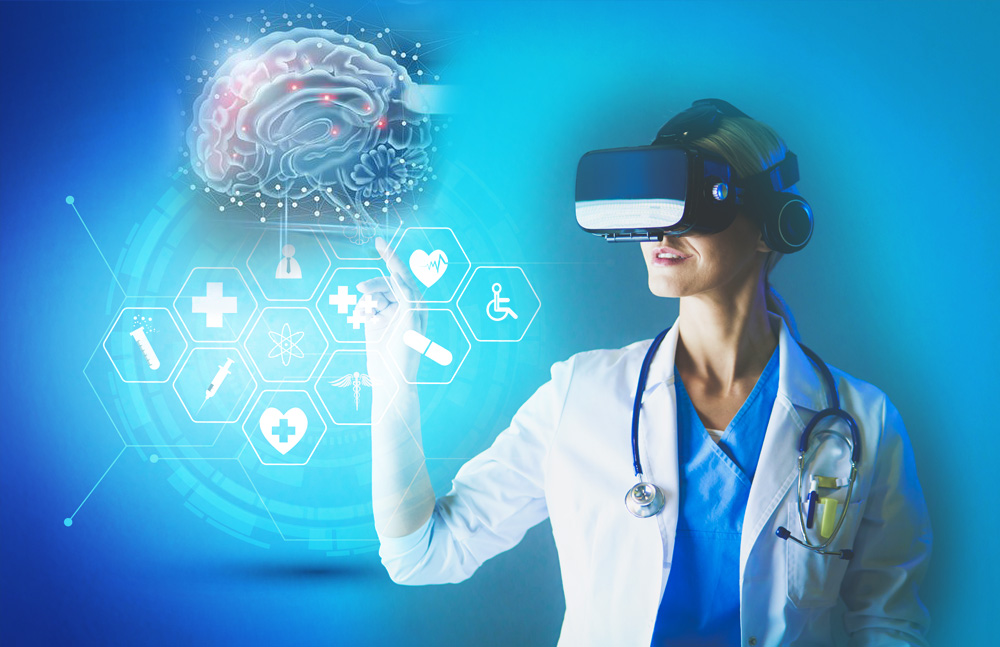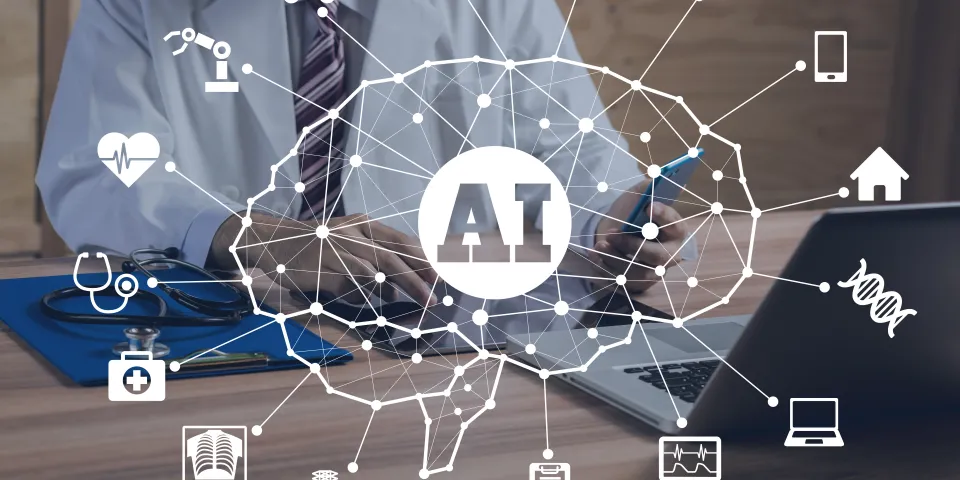AI Is Transforming The Future of Healthcare: India is on a mission to bring about a paradigm shift in the country’s healthcare system and is working on merging tech and medicine to make the nation’s healthcare robust and ‘aatmanirbhar’.
Apollo Hospitals and the Indian Institute of Technology (IIT) Kanpur have signed a Memorandum of Understanding for collaborative research in medical technology. With this connection, the country’s leading research institute and Asia’s largest integrated healthcare provider will provide artificial intelligence (AI) and other innovations to help India become independent in the healthcare sector.
The integration of machine learning in the healthcare industry of India is set to transform conventional methods
Last week Bharti Airtel and Apollo Hospitals carried out India’s first 5G-driven, AI-guided colonoscopy trial. An otherwise painful, time-taking manual process widely used to detect colon cancer was conducted in much less time, with more accuracy, and with way less hassle.
Tata Medical Centre and the Indian Institute of Technology have recently launched India’s first de-identified cancer image bank, which AI-based tools can use to detect biomarkers and help in bettering the results of cancer research.
Note:-
These are just a few examples, but they are clear enough to let the world know that India is all but fulfilling its mission to bring together healthcare and technology to bring about the paradigm shift the country desperately needs. With only about 64 doctors per 100,000 population, compared to the global average of about 150 per 100,000 patients, AI could be the answer to the country’s health problems.
How can AI be a game-changer?

The Accurate predictive analytics of what a given patient is likely to need next has historically been hampered by two obstacles: data collection overhead and computational difficulties. Machine learning has made the speed and computational complexity of data collection irrelevant to what humans do manually. These powerful algorithms enable us to envision therapeutic decisions tailored to each patient’s specific circumstances, resulting in better outcomes.
Here are a few areas in Artificial Intelligence that can make a difference and soon become the game changer for the health sector.
- Automation of manual tasks
- Powerful predictive capabilities
- Digital transformation
Automation of manual tasks
Powerful predictive capabilities
Digital transformation
Machine learning reduces the workload of doctors, radiologists, pathologists, and other providers by using algorithms to generate insights. Automated workflows designed for how medical teams work in the real world are often shared to facilitate information sharing and collaboration. Typical applications are:
- Imaging analysis leveraging widely available data sets
- Precise patient monitoring in the ICU or OR
- Real-time remote patient monitoring through wearables that track heart rate, activity level, and more
- Streamlining tedious administrative tasks like clinical documentation
Powerful predictive capabilities
Accurate predictive analytics of what a given patient is likely to need next has historically been hampered by two obstacles: data collection overhead and computational difficulties. Machine learning has made the speed and computational complexity of data collection irrelevant to what humans do manually. These powerful algorithms enable us to envision therapeutic decisions tailored to each patient’s specific circumstances, resulting in better outcomes.
Digital transformation
India is facing an exciting digital transformation in healthcare. Machine learning and other innovative technologies are rapidly gaining popularity, including automation and other AI techniques such as natural language processing, and 5G is on the horizon. There is now a vibrant ecosystem of start-ups and established health tech companies in the country, with a growing population seeking new roles. Healthcare providers have become more aware of the opportunities enabled by technology to do more with less. Governments are spending more on medical advances, and the general public is in support.
Key Takeaways
- The healthcare sector is one of the largest sectors in terms of both employment and revenue
- Despite the impressive growth of the sector, there are challenges galore – cost, quality, and accessibility of healthcare services
- The COVID-19 pandemic has created an urgency to adopt the latest technologies including AI
- It is estimated that data and AI in healthcare can add USD 25-30 billion to India’s GDP by 2025
- The top areas for AI implementation in the sector are patient care, operations, and R&D
- Need to create a strong win-win partnership between healthcare organizations with the right service providers to unleash the full potential of AI
India’s way forward
According to a report published in Economic Times, a study by Markets and Research has revealed that the digital healthcare market in India was valued at Rs. 252.92 billion in FY 2021 and is expected to reach Rs. 882.79 billion by FY 2027, expanding at a CAGR of 21.36 percent during the 2022-2027 period.
Also, read | Microsoft partners with ISRO to support space-tech startups in India- Check details



